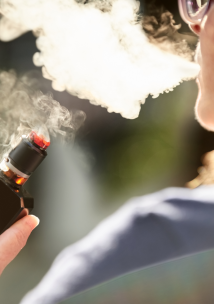Report: Youth-centred insights into vaping cessation
Vaping can harm brain development and lead to addiction. It may also increase the risk of anxiety, mood problems, and trouble sleeping. Young people aged 12 - 25 from Bath and North East Somerset, Swindon and Wiltshire spoke to us about why young people vape and what support would help them stop.

Here's what they told us:
- Many young people turn to vaping to cope with stress, anxiety, and social pressures. Neurodivergent individuals may also use it to navigate social situations.
- Young people want help that is free, private, and easy to access - but they often avoid direct engagement with school-based services due to stigma or fear of judgment.
- Many young people attempt to quit vaping without support, often trying to go “cold turkey.” They are frequently unaware of safer, more effective options like Nicotine Replacement Therapy.
- Schools remain a key setting for reaching young people consistently and effectively, but in many schools, the focus remains on punishment rather than support.
Download the full report below.
Downloads
Report: Youth-centred insights into vaping cessation
Recommendations
- Mental health support and messaging
- Mental health support services such as CAMHS, MIND, and BeU should actively share vaping cessation resources with young people.
- Messaging should explain how nicotine may contribute to worsening anxiety and mood over time, while promoting healthier, sustainable coping strategies.
- Easy, youth-friendly access to support
- Action on Smoking and Health, schools, and local authorities should collaborate to create discreet, youth-friendly access points for vaping support.
- Schools should be equipped with evidence-based resources and signposting to help young people make informed choices and access support without stigma.
- Promote Nicotine Replacement Therapy (NRT) for young people
- Public Health Swindon, in partnership with youth-centred organisations, schools, mental health services, and pharmacists, should raise awareness of NRT and behavioural alternatives - such as fidget tools - to help young people manage cravings and adopt healthier coping mechanisms.
- Resources should be co-developed with young people to ensure they are relevant and accessible.
If you are a young person who vapes, please share your feedback about local services with us with us by completing our online feedback form.

